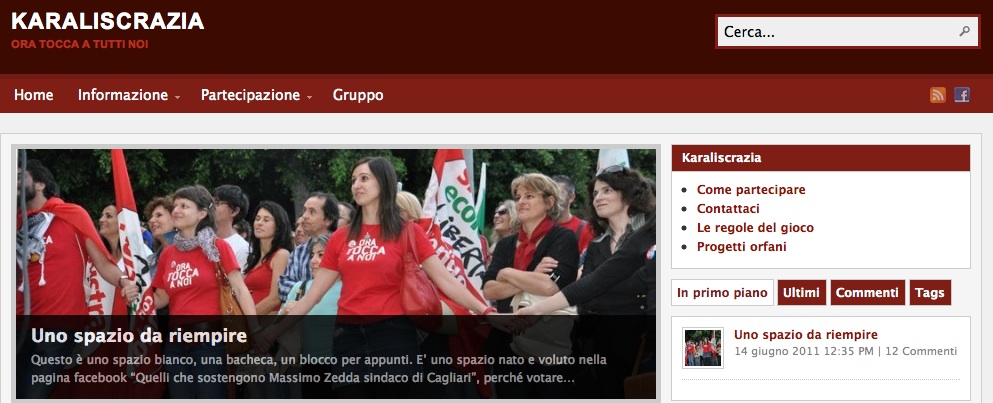
Ricevo spesso proposte di presentare Wikicrazia, il mio libro sull’azione di governo ai tempi della rete. Il tema è caldo, e lo rimarrà: dal mio punto di osservazione ho l’impressione che in tutta Italia si stiano costruendo spazi di collaborazione tra cittadini e istituzioni abilitati da Internet. In questi mesi di viaggi e di incontri collegati al libro, ho avuto la fortuna di incontrare veramente tante persone competenti, idealiste e appassionate, certamente in grado di fare proposte credibili di governo wiki nei loro territori. Vedo il mio ruolo, almeno in parte, nell’aiutare queste persone a stabilire collegamenti le une con le altre e con il movimento mondiale dell’open government. Sono cresciuto in provincia, e so bene quanta forza possa dare l’agire nel proprio territorio sentendosi parte di un fenomeno globale.
In questo periodo mi trovo all’estero. Mi è molto più difficile del solito spostarmi, e mi ero rassegnato a sospendere gli incontri per diversi mesi. La settimana scorsa, però, ho ricevuto un invito particolarmente interessante, e ho chiesto agli organizzatori se fossero disposti ad ascoltare la presentazione del libro, invece che da me, da qualcuno che lo conosce bene e che si riconosce nel movimento per un governo aperto. La risposta è stata entusiastica. A questo punto ho pubblicato un update su Facebook per sondare la disponibilità dei miei amici e lettori; con mia grande sorpresa, nel giro di un paio d’ore una mezza dozzina di persone (alcune delle quali non conosco personalmente) si sono rese disponibili a presentare il libro. Fantastico: un libro sulla collaborazione, scritto in modo collaborativo, e perfino presentato da una comunità aperta in stile wiki! Non credo sia mai stato fatto.
A questo punto vi faccio una proposta più articolata. Io e Navarra Editore cerchiamo volontari per presentare Wikicrazia al mio posto nei prossimi mesi, quando capita (e capiterà sempre più spesso) che io non possa andare di persona. I requisiti per farlo sono:
- avere letto il libro. Non è invece necessario condividerlo in toto; potete anche fare una presentazione critica se vi sembra giusto così.
- essere disposti a parlare in pubblico.
L’obiettivo è costruire un gruppo di wikicratici avanzati distribuiti tra le varie regioni italiane, in grado di parlare con competenza e disinvoltura di queste cose nelle occasioni pubbliche che si organizzano nei diversi territori. Ho la sensazione che un gruppo così potrebbe essere utile anche per fare altre cose.
